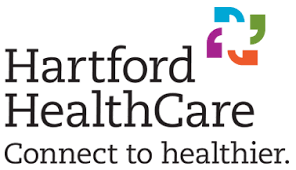Growing your own food has many health benefits:
It helps you eat more fresh fruits and vegetables.
Fruits and vegetables from your own garden are higher in nutrients than the ones that have traveled several thousands miles to get to your grocery store.
Having your children assist you in the garden can increase the chance that they will eat more of the fruits and vegetables they have helped to grow.
You decide what kinds of fertilizers and pesticides come in contact with your food.
It lets you control when to harvest your food. Vegetables that ripen in the garden have more nutrients than some store-bought vegetables that must be picked early.
Gardening increases physical activity.
Gardening gives you’re a real sense of appreciation when you can see the bounty of your efforts.
Growing a garden gives you a new appreciation for nature, when you can have the opportunity to see how things grow.
Gardening gives you the opportunity to give back. If you have an abundant garden, you might give some of your produce to the local soup kitchen or food bank
Gardening = Healthy Eating
School and Community Gardens
Gardens can foster a great sense of community through parent to parent connections, teacher to student or student to student.
Schools and community gardens help to build community.
This is a tremendous learning tool for all involved as well a providing a source of nutritious fruits and vegetables.
A community/school garden can help to foster and motivate future leaders.
Neighborhood Community Gardens beautify the landscape, support local farmers,
can create a food secure community where residents do not need to rely on vendors to supply fresh produce.
Nutrients
- Most vegetables are naturally low in fat and calories. None have cholesterol. (Sauces or seasonings may add fat, calories, and/or cholesterol.)
- Vegetables are important sources of many nutrients, including potassium, dietary fiber, folate (folic acid), vitamin A, and vitamin C.
- Diets rich in potassium may help to maintain healthy blood pressure. Vegetable sources of potassium include sweet potatoes, white potatoes, white beans, tomato products (paste, sauce, and juice), beet greens, soybeans, lima beans, spinach, lentils, and kidney beans.
- Dietary fiber from vegetables, as part of an overall healthy diet, helps reduce blood cholesterol levels and may lower risk of heart disease. Fiber is important for proper bowel function. It helps reduce constipation and diverticulosis. Fiber-containing foods such as vegetables help provide a feeling of fullness with fewer calories.
- Folate (folic acid) helps the body form red blood cells. Women of childbearing age who may become pregnant should consume adequate folate from foods, and in addition 400 mcg of synthetic folic acid from fortified foods or supplements. This reduces the risk of neural tube defects, spina bifida, and anencephaly during fetal development.
- Vitamin A keeps eyes and skin healthy and helps to protect against infections.
Vitamin C helps heal cuts and wounds and keeps teeth and gums healthy. Vitamin C aids in iron absorption
Quick Tips: Adding Fruits and Vegetables to Your Diet
Eating vegetables provides health benefits – people who eat more vegetables and fruits as part of an overall healthy diet are likely to have a reduced risk of some chronic diseases. Vegetables provide nutrients vital for health and maintenance of your body.



